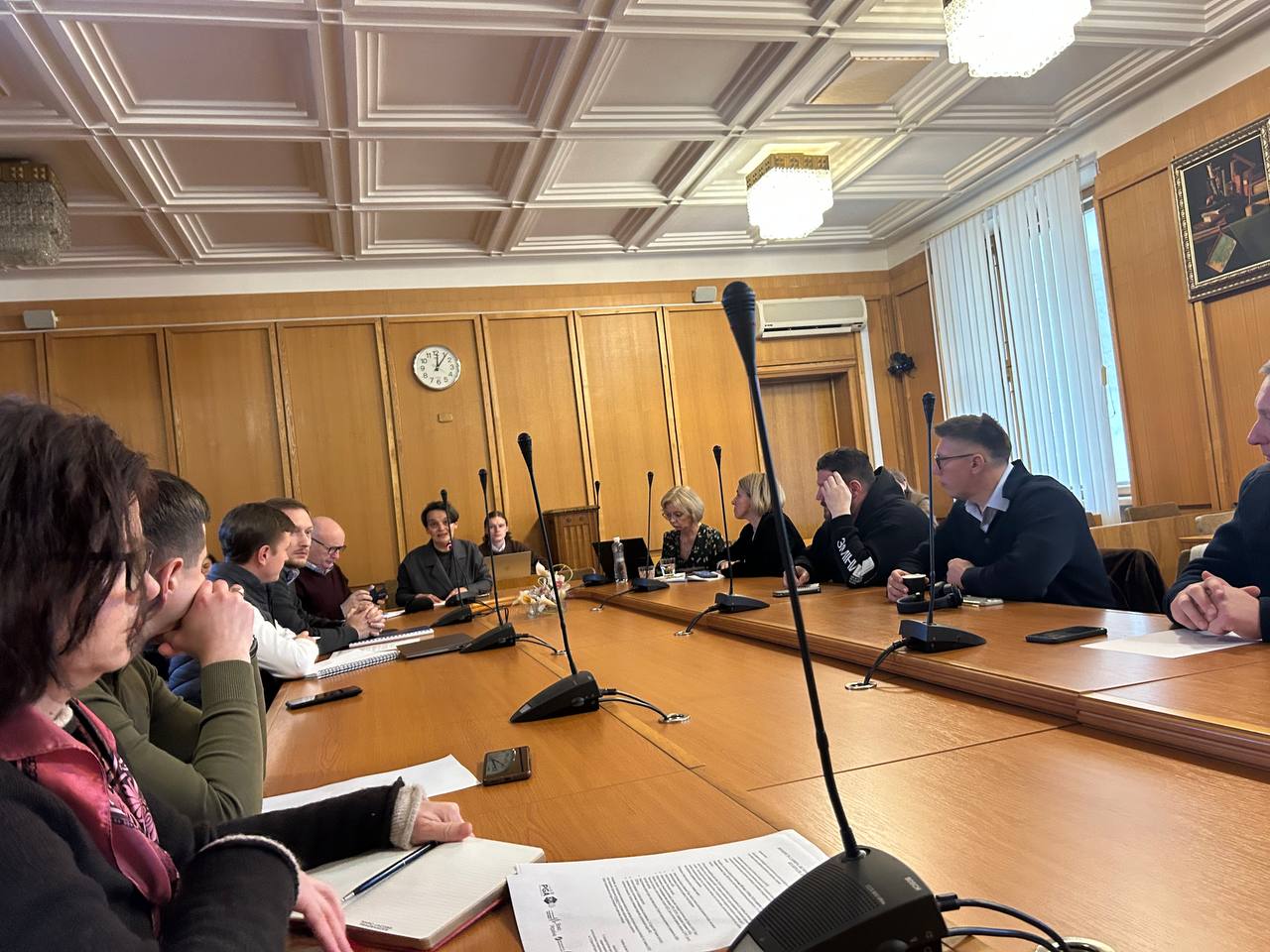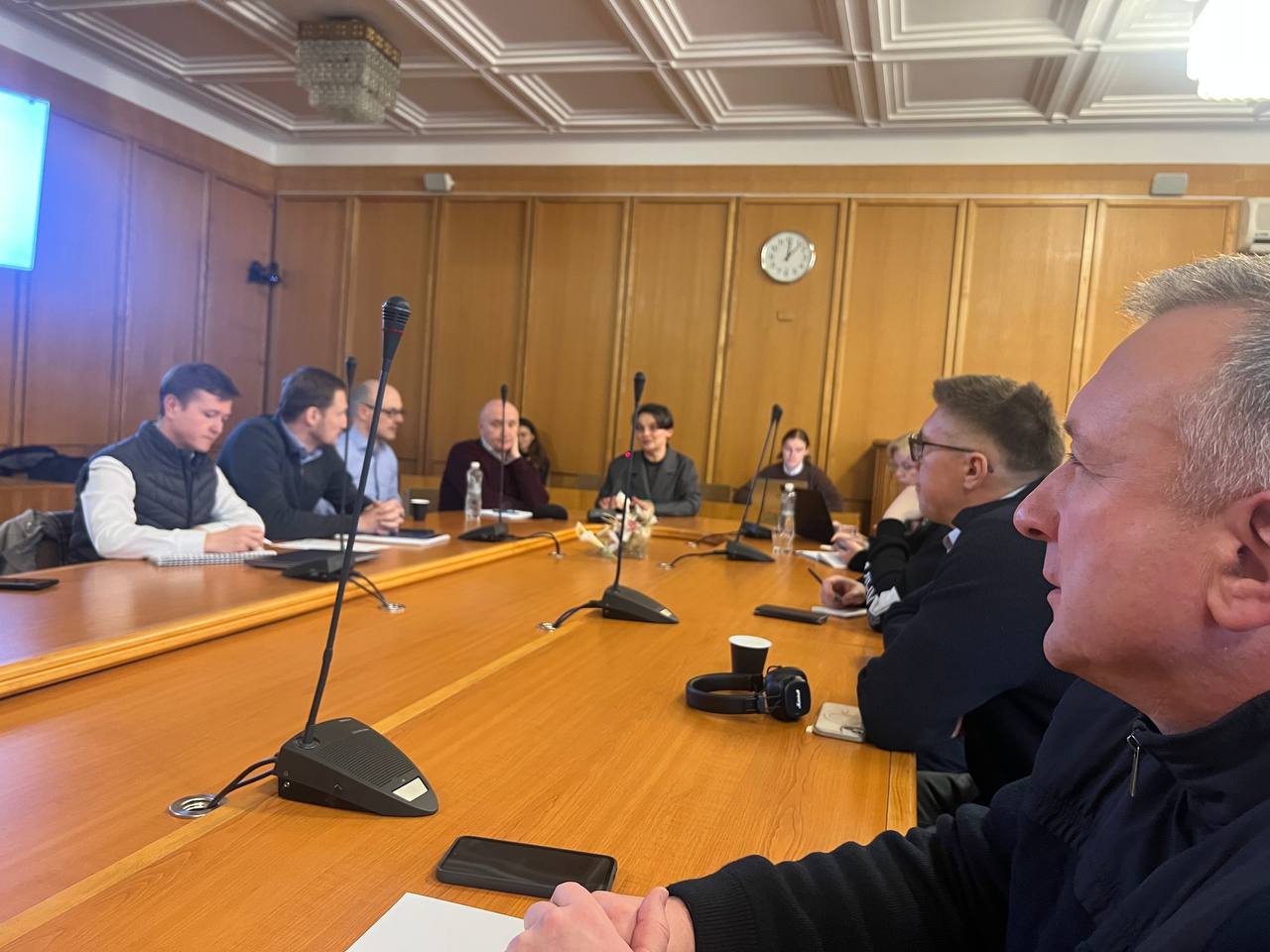EXPERT SEMINAR “TRANSPARENCY AND TRUST: HOW TO REFORM THE CIVIL SERVICE WITHOUT LOSING LEGITIMACY”

On November 4, 2025, the Kuras Institute of Political and Ethnic Studies of the National Academy of Sciences of Ukraine hosted an expert seminar titled “Transparency and Trust: How to Reform the Civil Service Without Losing Legitimacy.” The event was organized by a number of civil society organizations – the Professional Government Association (PGA), the Reanimation Package of Reforms Coalition (RPR), the Centre of Policy and Legal Reform (CPLR), the Centre for Democracy and Rule of Law (CEDEM), Vox Ukraine, and the Association of Political Sciences of Ukraine (APSU). The seminar served as a platform for professional dialogue among government bodies, the academic community, civil society, and international partners on the renewal of the public service system.
Participants discussed three key directions for future reform: the abolition of lifetime status for politically exposed persons (PEPs), the modernization of financial disclosure, and aligning the remuneration system of civil servants with market standards. Representatives of government institutions – Nataliia Kozlovska (Secretariat of the Cabinet of Ministers of Ukraine), Oleksandr Hladun (NACP), and Kyrylo Klymenko (Accounting Chamber) emphasized the need to coordinate anti-corruption, budgetary, and management decisions within the preparation of the new Public Administration Reform Strategy (2026–2030). They acknowledged that the civil service requires an updated remuneration system, but such changes must go hand in hand with institutional strengthening of the service itself.
Representatives of civil society – Artem Shaipov (PGA), Taras Shevchenko (CEDEM), and Hlib Vyshlinsky (Centre for Economic Strategy, CES) called for avoiding an oversimplified reform through an excessive anti-corruption bias. They stressed that reform should be based on evidence-based policy and take into account public perceptions of fairness. In particular, A. Shaipov called for empirical research on institutional trust, while T. Shevchenko warned about the risks of “anti-corruption maximalism,” which could undermine the motivation of civil servants. Vyshlinsky emphasized that increasing salaries in the public sector is a prerequisite for effective reform, not its consequence.
The academic and expert community – Olena Sushyi (Institute of Social and Political Psychology of the National Academy of Educational Sciences of Ukraine), Halyna Zelenko, Svitlana Sytnyk, Nataliia Kononenko, Rostyslav Balaban, and Yurii Nikolaets (Kuras Institute of Political and Ethnic Studies of the NAS of Ukraine; members of the Association of Political Sciences of Ukraine) stressed that the success of reforms is measured by the level of public trust, not only by administrative changes. They highlighted the need to restore political responsibility, open communication with citizens, and institutional consistency in political practices. Liudmyla Yuzhva (NDI) drew attention to the importance of the communication component in building trust in the reform process.
European organizations were represented by Ugis Siksna, head of the EU4PAR project, who emphasized that the EU consistently insists on adhering to the principle of risk orientation and international transparency standards in evaluating the performance of the civil service, as well as maintaining a balance between data openness and the protection of civil servants’ privacy.
The discussion demonstrated that the Ukrainian discourse on civil service reform is gradually moving beyond a technocratic approach and acquiring the features of a value-based search for balance between control, trust, and professionalism. The participants agreed that the renewal of the civil service should be based on transparency, evidence, and political responsibility. A reform that preserves legitimacy must become a public contract of trust between the state, society, and international partners.


